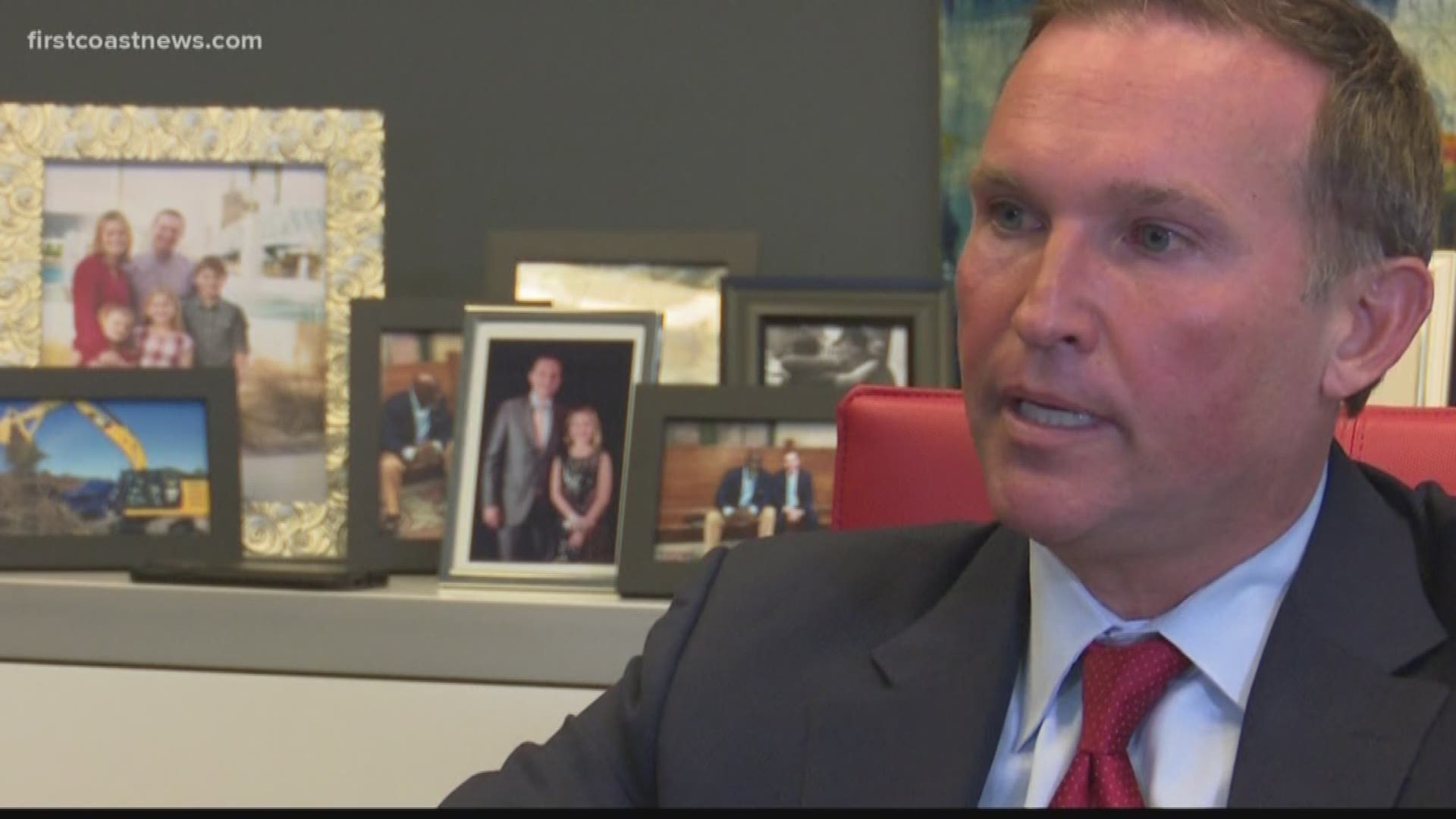JACKSONVILLE, Fla. — Jacksonville Mayor Lenny Curry says there is no part of the Lot J project that will be funded by a JEA sale in any capacity. He has his own ideas for the money if the public utility was sold.
"Lot J is my deal that I’m pursuing," Curry said. "The JEA board said they will look into recapitalization, privatization, that was their decision."
While the two events may coincide timeline-wise, the mayor says he has other plans in store that he would suggest to help make the city debt-free.
"I would immediately pursue and suggest that the City of Jacksonville pay off all their debt," he said. "Pay off $2.2 billion in debt and be the first debt-free city in America. But all of that is hypothetical because in the end none of this can happen if the voters don’t say yes."
He also says he won't support a sale if it doesn’t meet his three principals:
1. Massive layoffs, which he won’t support, and is no longer an avenue being pursued now that JEA is exploring privatization.
2. The loss of pension and benefits, which he says he will file legislation to protect.
3. The value of JEA, which he says must exceed $3 billion if it's sold.
In 2018, a report from PFM places a value on JEA that far exceeded that. They valued the public utility between $7.5 and 11 billion. The Jessie Ball DuPont Fund also studied the utility and subsequently valued JEA at $7.5 billion.
The mayor says this time around is different because it’s actually going out onto the marketplace to find true value estimates.
"The public will ultimately have the final say, they will vote if this goes that direction, if the JEA suggests that this is the path to travel, the only real public opinion that matters is a vote, they will vote yes or they will vote no and that’s how it should be."
There is one hiccup with a vote, if it comes to that, that still needs to be worked out. The city charter states if more than 10% of JEA assets are sold, it must ultimately go before the people in a vote, but the city’s general counsel wrote a memorandum that says that 10% is cumulative over time.
That means 10% of JEA assets may have already been sold over the last few decades, as parts of JEA are sold all of the time, from equipment to land.
It's something that CEO Aaron Zahn says he’s aware of, but so far there are no plans to change it.
Friday morning starting at 8:30 a.m. JEA will hold a collective bargaining meeting with the unions as they work out future contracts for employees.
It’s open to the public.

